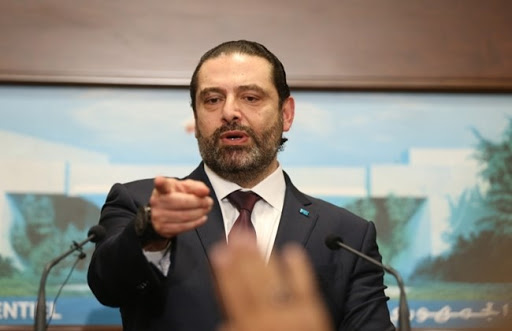
Beirut : Lebanese former Prime Minister Saad Hariri said on Friday that Iran-backed Hezbollah was responsible for the rift with Saudi Arabia and other Gulf countries.
“The responsibility, first and foremost, in this regard lies with Hezbollah, and its professed hostility toward the Arabs and the Arab Gulf states,” Hariri said in a tweet.
He issued the statement after Saudi Arabia recalled its ambassador from Lebanon “for consultation” and ordered the Lebanese envoy in Riyadh to leave within 48 hours on Friday. Saudi Arabia also banned Lebanese products from the Kingdom.
Riyadh’s actions were in response to comments made by Lebanon’s Information Minister George Kordahi about the Saudi-led military intervention in Yemen. Kordahi, a former newscaster of the Saudi broadcast company MBC, said that the Yemen’s Houthi militia were only defending themselves against aggression.
Saudi Arabia, the United Arab Emirates, Qatar and several other Arab states formed a coalition in 2015 to help restore Yemen’s legitimate government which was ousted by the Houthis. Since then, the Iran-backed militia had been launching ballistic missiles, rockets and explosive-laden drones against civilian targets in Saudi Arabia.
The dispute is the latest challenge to Prime Minister Najib Mikati’s cabinet which is already in political paralysis over a row around the Beirut port blast probe.
The rift risks widening to more Gulf states with Bahrain also asking Lebanon’s ambassador to leave shortly after the Saudi decision.
Mikati, in a phone call with Kordahi on Friday evening, asked him to put the national interest first and “take the right decision to fix Arab relations with Lebanon,” a statement by his office said.
Sources with knowledge of the matter had told Reuters the Saudi escalation was piling pressure on Kordahi to resign in order to avert further consequences.
Mikati earlier reiterated his government’s commitment to good relations with Saudi Arabia and called for Arab partners to put the latest crisis behind them but stopped short of announcing concrete action to remedy the crisis.
“We also appeal brotherly Arab leaders to work and help to overcome this crisis in order to preserve Arab cohesion,” the statement said.
Kordahi has said the show was recorded nearly a month before he took office and he would not resign over the incident, earning praises from the Hezbollah.
Mikati has been hoping to improve ties with Gulf Arab states which have been strained for years because of the influence wielded in Beirut by the Iran-backed Shiite group Hezbollah.
“The control of the terrorist Hezbollah on the decision-making of the Lebanese state made Lebanon an arena for implementing projects for countries that don’t wish Lebanon and its people well,” a Riyadh statement carried by SPA said.
In April, Saudi Arabia banned all fruit and vegetable imports from Lebanon blaming an increase in drug smuggling by Hezbollah .
The ban added to the economic woes of Lebanon, already in the throes of one of the modern times’ deepest financial crises.
ARAB NEWS

Leave a Reply
You must be logged in to post a comment.